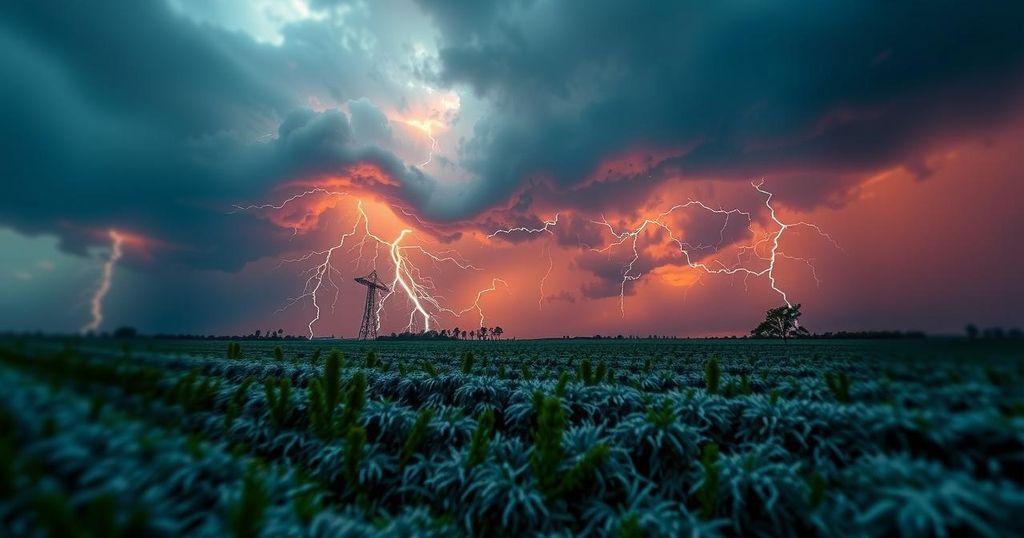Impact of Climate Change on Deadliest Weather Events: A Call for Action
An analysis by scientists from Imperial College London highlights that human-induced climate change has intensified the severity of the ten deadliest weather events globally over the past two decades, leading to over 570,000 deaths. Extreme weather results from burning fossil fuels, with instances such as droughts, heatwaves, tropical cyclones, and floods linked to climate change. Researchers underscore the urgent need for resilience measures against escalating climate-related disasters.
A recent analysis conducted by scientists from the World Weather Attribution (WWA) group at Imperial College London has revealed that human-induced climate change has significantly exacerbated the frequency and severity of the ten deadliest extreme weather events over the past two decades. These catastrophic weather events, which include storms, heatwaves, and floods, have claimed the lives of over 570,000 individuals across Europe, Africa, and Asia. This study serves as a critical eye-opener for policymakers who continue to rely on fossil fuels, highlighting the urgent necessity to address climate change. Dr. Friederike Otto, co-founder and lead of WWA, asserted, “If we keep burning oil, gas and coal, the suffering will continue.” The researchers meticulously analyzed data from the International Disaster Database focusing on significant weather events since 2004. The deadliest event identified was the 2011 drought in Somalia, responsible for over 250,000 fatalities, with climate change contributing to the increased likelihood and intensity of such conditions. Prominent instances include the 2015 heatwave in France that resulted in over 3,000 deaths, with research indicating that climate change made such high temperatures twice as likely. The extreme heatwaves in Europe during 2022 and 2023 caused the loss of 53,000 and 37,000 lives, respectively, both of which the study argues would have been impossible without anthropogenic climate change. Similar findings were noted concerning tropical cyclones impacting Bangladesh, Myanmar, and the Philippines, as well as severe flooding in India. The analysis underscores that the actual death toll from these extreme weather events is likely underreported, especially in lower-income nations where fatalities attributed to heat are often inadequately documented. The study built upon pioneering methods established by Dr. Otto and Dutch climatologist Geert Jan van Oldenborgh, which facilitated the attribution of extreme weather events to climate change by employing advanced atmospheric models. By comparing current climate scenarios with a hypothetical scenario devoid of industrial revolution impacts, researchers could ascertain the likelihood of extreme weather events in the context of 1.2°C of global warming experienced thus far. Roop Singh from the Red Cross Red Crescent Climate Centre emphasized that the continual rise in extreme weather events manifests our lack of preparedness for future climate conditions, stating, “With every fraction of a degree of warming, we will see more record-breaking events that push countries to the brink, no matter how prepared they are.”
The impact of climate change on extreme weather events has become a pressing concern for scientists and policymakers alike. Over the last two decades, the increasing intensity and frequency of extreme weather events—attributed largely to human activities—have led to catastrophic loss of life and property. The World Weather Attribution (WWA) group has pioneered methods to analyze the linkage between climate change and specific weather events, enabling researchers to assess how much more severe these occurrences have become due to global warming. This awareness underscores the urgent need for global action to mitigate climate change and build resilience in affected communities.
In conclusion, the analysis conducted by the World Weather Attribution group highlights the critical impact of climate change on the deadliest weather events of the past two decades, which has resulted not only in a substantial loss of life but also poses a continuing threat as global temperatures rise. The findings reinforce the urgency for political leaders and nations to transition away from fossil fuel dependency and enhance resilience strategies in preparation for an increasingly volatile climate. With the acknowledgment of the direct correlation between climate change and extreme weather, comprehensive and immediate action is paramount to reduce future suffering and protect vulnerable populations across the globe.
Original Source: www.bbc.com




Post Comment